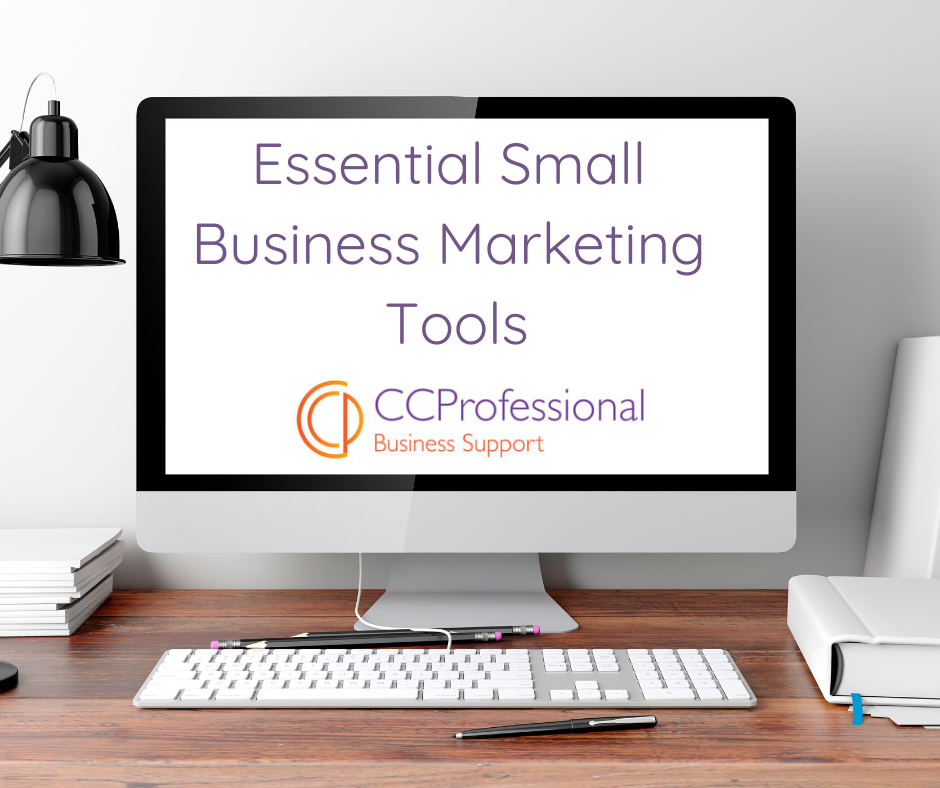Here are my top 6 marketing tools for small businesses:
Social Media Scheduling Tools
Tools like Hootsuite, Buffer, or even the native scheduling function that is available on both Facebook and Twitter can REALLY help to save you valuable time with your Social Media marketing. In the early days of running my business, I tried to post content that was relevant and ‘live’ straight into my Social Media channels, usually logging in every couple of days to post something. However, what should just have been a ‘log in, post, log out’ process invariably ended up with me spending far longer than I wanted on the platform. Scheduling tools allow you to post content for a week or a month all in one go to multiple platforms, meaning that you can get everything out the way in a couple of hours and then not necessarily have to log in again for another few weeks! This doesn’t work if you post time-sensitive content or refer to things like ‘breaking news’ headlines or comments about the weather, as things could be very different in a fortnight’s time! However, if you post relatively generic content and then worry about posting important, relevant and newsworthy content ‘live’, if/when it happens, you’ll still be saving yourself a significant amount of time and have a social media feed that is kept interesting with regular content.
Canva
I’m no graphic designer, but 30 minutes in Canva and I do begin to think that a career jump into art and design isn’t too far fetched! Canva is a simple drag-and-drop builder that allows you to build eye-catching social media posts, email headers, newsletters, etc. quickly and simply, and with a huge number of royalty-free images to boot it’s a great tool to brighten up your marketing efforts. You can also create mini animations in minutes, which can really help your content to stand out from the crowd on social media channels.
Lumen5
Lumen5 is a fantastic tool if you want to create a simple and striking video out of a blog or item of content. Videos are one of the most engaging mediums by which to share content on social platforms, so why not re-purpose an existing blog and make it a whole new shareable item? It features royalty free images, video snippets and music, and can make even the driest items of content more engaging and fun.
Google Analytics
GA is a must-have tool if you have a business website and want to track the amount of traffic AND the type of visitors who come to your site, and their behaviour when they get there. This kind of data can really help to show you whether your marketing efforts are working – are you getting regular traffic from your Social Media channels? Are your email marketing campaigns resulting in relevant visitors to the website? You can find all this out (and more) on the free Google Analytics platform after you’ve added some simple tracking code to your website (or asked your web developer to do this for you). The important thing to mention is that Google Analytics relies on non-essential cookies to track visitor data, and the Privacy and Electronic Communication Regulations (PECR) now require you to give people the option to opt-out quickly and easily from non-essential cookies, so make sure you bear that in mind if you do decide to set up Google Analytics (or anything else with non-essential cookies) on your website. For more information, visit the Information Commissioner’s Office Website
Email Marketing tools
Email marketing tools such as Mailchimp and Active Campaign make it much easier for you to stay in contact with your existing customers (and potentially interested customers) in an engaging and eye-catching way. Their drag and drop email builders allow you to create visually appealing emails that you can regularly send out to your mailing list quickly and simply, without having to BCC them all into a single email! People also have the ability to easily opt out of your marketing, and you can also create sign-up forms for your website and social media channels to bring new leads into your contact database.
Task list tools like Todoist and Asana aren’t necessarily pure marketing tools, but make it incredibly easy for you to create regular tasks or one-off projects that you’d like to complete as part of your marketing efforts. Even if you don’t quite get around to them by your given ‘deadline’, these tools can act as a wishlist for marketing activities, and you could consider dipping in every time you’ve got a spare 15-30 minutes to carry out an activity or two. If marketing isn’t a natural strong point for you, brainstorming activities and putting specific tasks in a task management tool can help remind you of the work that you’d ideally like to achieve in a week/month/quarter for your business marketing.
Do you have a favourite marketing tool? If so, feel free to share it on my Social Media channels – it would be great to hear from you!


 RSS Feed
RSS Feed
